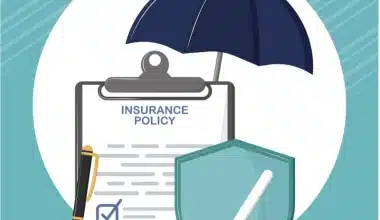If you’re planning a grand celebration or hosting a significant event, the guide on Special Event Insurance: coverage, cost, and best options is for you. Special event insurance provides coverage for a range of risks associated with hosting special events. It helps protect event organizers from financial losses and liabilities that may arise due to unforeseen circumstances, property damage, injuries, or other event-related incidents.
What is Special Event Insurance?
Special Event Insurance is insurance coverage specifically designed to protect individuals or organizations hosting special events from financial losses or liabilities that may arise during the event. It provides coverage for a wide range of risks and can help mitigate the financial impact of unforeseen circumstances.
Benefits of Special Event Insurance
Special Event Insurance offers several benefits to event organizers and hosts. The key benefits are:
#1. Reimbursement for Lost Deposits
Special Event Insurance can provide coverage for lost deposits if a vendor or service provider fails to deliver as agreed upon. This can help event organizers recover the financial losses associated with non-performance or breach of contract by vendors.
#2. Coverage for Event Gifts and Favors
Special Event Insurance can protect event gifts, favors, or other special items that may be damaged, lost, or stolen during the event. This coverage can provide peace of mind, especially for events where valuable or sentimental items are involved.
#3. Coverage for Event Cancellation or Postponement Due to Illness or Injury
Special Event Insurance can offer coverage in case the event organizer or a key participant falls ill or gets injured before the event. This coverage can help cover the costs associated with rescheduling or canceling the event due to unforeseen health-related circumstances.
#4. Protection against Vendor or Performer No-Shows
In case a contracted vendor or performer fails to show up at the event, Special Event Insurance can provide coverage for the costs of finding a suitable replacement or rescheduling the event. This can help prevent financial losses and ensure the event proceeds smoothly.
#5. Financial Protection
Special Event Insurance provides financial protection against unexpected expenses and losses that may occur during the event. It can help cover costs related to event cancellations, property damage, liability claims, lost deposits, and more. This protection can help mitigate the financial impact and potential liabilities associated with hosting a special event.
#6. Venue Requirement Compliance
Many event venues require event organizers to have special event insurance as a condition of hosting the event. By obtaining the necessary insurance coverage, event organizers can meet the venue’s requirements and ensure a smooth and successful event.
#7. Coverage for Additional Expenses
It can cover additional expenses incurred due to unforeseen circumstances. For example, if there is a need to rent alternative equipment or find a different venue at the last minute, the insurance can help cover these extra costs.
#8. Liability Protection
It includes liability coverage, which protects event organizers from claims made against them due to injury to guests or damage to the venue. This coverage can help cover legal expenses, medical costs, and potential settlements or judgments.
#9. Customizable Coverage
The policies can be tailored to meet the specific needs of the event. Event organizers can choose the types and limits of coverage that best suit their requirements, ensuring they have the appropriate level of protection.
#10. Coverage for Event Photography/Videography Errors
If the event photographer or videographer fails to deliver the expected services or the captured media is lost or damaged, Special Event Insurance can help cover the costs of reshooting, reproducing, or retaking the photos or videos.
Special Event Insurance Coverage
The insurance provides coverage for a variety of risks and potential losses that may occur during a special event. The specific coverage offered can vary depending on the insurance provider and policy, but here are some common types of coverage included:
#1. Cancellation or Postponement
Special Event Insurance can help cover the costs associated with canceling or postponing the event due to unforeseen circumstances such as extreme weather, illness, or venue-related issues.
#2. Property Damage
If the event organizer is found responsible for property damage during the event, Special Event Insurance can help cover the costs of repairs or replacement.
#3. Injury or Liability
Special event insurance can provide coverage for injuries that occur during the event and hold the event organizer liable. It can help cover legal expenses, medical costs, and potential settlements or judgments.
#4. Lost Deposits
If vendors or service providers fail to deliver their services as agreed upon, resulting in financial losses, Special Event Insurance can help reimburse the lost deposits.
#5. Jewelry, Clothes, and Gifts for Events
Special Event Insurance can provide coverage for loss, theft, or damage to event gifts, special attire, and jewelry.
#6. Event Photographs/Video
If the event photographer or videographer fails to deliver the agreed-upon services or the media is lost or damaged, Special Event Insurance can help cover the costs of reshooting or reproducing the media.
#7. Liquor Liability Insurance (Optional)
Optional coverage for liquor liability can protect the event organizer from claims related to alcohol-related incidents.
Special Event Insurance can include coverage for weather-related issues such as rain, windstorms, or hurricanes. This coverage can help protect against financial losses resulting from event cancellation, rescheduling, or additional expenses incurred due to adverse weather conditions.
#9. Non-Appearance Coverage
This coverage applies when a key individual, such as a performer or a speaker, fails to appear at the event due to unforeseen circumstances. It can help cover expenses related to rescheduling, refunds, or additional costs incurred to find a suitable replacement.
#10. Equipment and Rental Coverage
This coverage protects against damage or loss of equipment or rented items used during the event, such as audiovisual equipment, staging, or sound systems.
Special Event Insurance Policy
Special Event Insurance policies are designed to provide coverage and protection for various risks and potential losses associated with hosting a special event. While specific policy details can vary depending on the insurance provider and the chosen policy.
Elements And Features Of Special Event Insurance Policies
#1. Coverage Types
Special Event Insurance policies offer coverage for a range of risks, including event cancellation or postponement, property damage, liability claims, lost deposits, injury or accidents, weather-related issues, non-appearance of key individuals, and more.
#2. Coverage Limits
The policy will specify the maximum amount of coverage available for each type of risk or loss. Coverage limits can vary depending on the policy and the insurance provider. Always review the policy to understand the coverage limits and ensure they align with the needs of the event.
#3. Exclusions and Limitations
Special Event Insurance policies may have certain exclusions or limitations that define what is not covered. These exclusions can vary but commonly include intentional acts, illegal activities, acts of war, and certain high-risk activities.
#4. Optional Coverages
Some Special Event Insurance policies offer optional coverages that can be added to the base policy for an additional premium. These optional coverages may include liquor liability coverage, additional liability coverage, coverage for specific items or activities, or coverage for specific risks that are not included in the base policy.
#5. Policy Duration
Special Event Insurance policies are typically purchased for a specific event and have a defined policy duration. The policy will specify the start and end dates of coverage, ensuring that the event is protected during the designated period.
The cost of Special Event Insurance can vary depending on factors such as the type and size of the event, coverage limits, optional coverages chosen, and the insurance provider. The premium for the policy will be determined based on these factors and the specific details of the event.
#7. Obtaining a Policy
Special Event Insurance policies can be obtained from various insurance providers. Event organizers can request quotes, compare policies, and purchase the desired coverage online or by contacting insurance representatives.
#8. Deductible
A Special Event Insurance policy may include a deductible, which is the amount that the event organizer must pay out of pocket before the insurance coverage kicks in. The deductible amount can vary depending on the policy and the specific coverage.
#9. Policy Endorsements
Special Event Insurance policies may offer endorsements or add-ons that allow event organizers to customize their coverage. These endorsements can provide additional protection for specific risks or activities that are not covered by the base policy.
#10. Policy Renewal
Special Event Insurance policies are usually purchased for a specific event and have a defined policy duration. However, some policies may offer the option to renew coverage for recurring events or multiple events within a specified timeframe.
Special Event Insurance Cost
The cost of Special Event Insurance can vary depending on several factors, including the type and size of the event, coverage limits, duration, location, number of attendees, and the insurance provider.
Factors Influence The Cost Of Special Event Insurance
The premium for Special Event Insurance is the amount that event organizers pay to obtain coverage. Premiums can vary widely depending on various factors. The cost of the policy is influenced by the level of risk associated with the event. Events with higher risks, such as large-scale festivals or events involving high-risk activities, may have higher premiums compared to smaller, low-risk events.
The median premium for one-day Special Event Insurance is around $182, regardless of policy limits. For events lasting two to 10 days, the median premium is approximately $250, and for events longer than 10 days, the median premium is around $257. These figures provide a general idea of the cost range for Special Event Insurance.
#3. Coverage Options and Limits
The specific coverage options and limits chosen by event organizers can also impact the cost of Special Event Insurance. Higher coverage limits or additional optional coverages may result in higher premiums.
#4. Event Type and Industry
The type of event and the industry it belongs to can also influence the cost of Special Event Insurance. Different industries may have varying levels of risk associated with their events, which can affect the premium rates.
#5. Alcohol Service
If alcohol is being served at the event, the inclusion of liquor liability coverage may impact the cost of the
#6. Event Budget
Events with higher budgets overall tend to have higher insurance costs due to larger potential losses. However, insurance costs are just one part of the total event costs.
#7. Insurance Provider
Different insurance providers may charge varying premiums based on their underwriting approach and the risks they perceive with certain types of events. Organizers can compare quotes from multiple providers.
#8. Event Size and Duration
Larger events with more guests and longer durations tend to be more expensive to insure due to higher risks and potential losses. Event insurance costs are often quoted on a per-person or per-day basis.
#9. Policy Limits
Higher policy limits that provide more coverage result in higher premiums. Organizers can choose policies with different liability limits and coverage amounts based on their needs and budget.
#10. Optional Coverages
Adding optional coverages, like cancellation coverage, liquor liability coverage, coverage for property and equipment, etc., will increase the cost of insurance. Organizers can decide which optional coverages are important for their specific event.
Best Special Event Insurance
There are several options for special event insurance, and the best one for you will depend on your specific needs and the type of event you are hosting.
Here are the best special event insurance options
#1. Eventsured
Eventsured offers special event liability insurance and event cancellation insurance starting as low as $63. They cover a wide range of events, including weddings, festivals, parades, and more. They also offer easy-to-use online applications that make buying insurance simple.
#2. RVNA
RVNA offers special event liability insurance and event cancellation insurance, and they have a wide range of coverage options to choose from. They cover events such as weddings, corporate events, and non-profit functions. RVNA also offers coverage for events with up to 10,000 attendees.
#3. Markel
Markel offers special event liability insurance and event cancellation insurance, and they offer discounts for bundling coverage. They cover events such as weddings, festivals, and corporate events.
#4. Philadelphia Insurance Cos.
Philadelphia Insurance Cos. offers special event liability insurance and event cancellation insurance, and they offer optional coverage for things like liquor liability and cyber liability. They cover events such as weddings, business meetings, and non-profit functions.
#5. Allstate
Allstate offers special event liability insurance and event cancellation insurance, and they have an easy-to-use online application that makes buying insurance simple. They cover events such as weddings, engagement parties, and business meetings.
#6. WedSafe
WedSafe is another top-rated provider of wedding insurance. They offer coverage for liability, cancellation, and additional options such as coverage for wedding attire, gifts, and photographs.
#7. Progressive
Progressive offers event insurance coverage, including coverage for weddings. They protect against cancellation, and liability, and offer additional coverage for specific items such as wedding dresses, tuxedos, and gifts.
#8. GEICO
GEICO offers event insurance coverage, including liability coverage for various types of events. They protect against property damage and bodily injury claims that may arise during the event.
#9. Best California Insurance
Best California Insurance offers insurance coverage for every type of event, including weddings, festivals, family events, concerts, rodeos, tournaments, parades, and more. They offer some of the broadest special event insurance coverage at the most competitive prices.
#10. Allstate
Allstate offers special event insurance that helps protect you from financial loss if you’re held responsible for an accident that hurts someone or causes property damage at your event. They offer coverage for events such as weddings, engagement parties, business meetings, non-profit functions, retirement parties, anniversary parties, and corporate events.
What Is Special Event Insurance?
Special event insurance is a type of insurance that provides coverage for events such as weddings, festivals, corporate events, and non-profit functions. It is designed to protect the event holder from claims made against them due to injury to guests and/or damage to the venue. Special event insurance typically includes event liability coverage, which helps protect you from financial loss if you’re held responsible for an accident that hurts someone or causes property damage at your event.
What Does Special Event Insurance Cover?
Special event insurance covers a range of risks, including event cancellation or postponement, property damage, liability for injuries, and optional add-on coverages for specific risks. The specific coverage and limits will vary depending on the insurance provider and policy.
How To Get Special Event Insurance?
To get special event insurance, you should research reputable insurance providers, determine your coverage needs, request quotes, compare coverage and costs, review policy details, purchase the policy, and obtain proof of insurance. Carefully review the policy details and consult with the insurance provider to ensure you have the appropriate coverage for your event.
What Is An Example Of Event Insurance?
An example of event insurance is liability coverage for injuries that may occur during an event. For instance, if someone trips on the dance floor and injures themselves, event liability coverage can help pay for their medical expenses.
How Much Does Event Cancellation Insurance Cost?
Event cancellation insurance protects canceled or postponed events due to unforeseen circumstances. It covers lost costs if a weather emergency or a vendor fails to follow through. The cost varies based on factors like event type, size, policy limits, risk level, and duration. The average cost is 90 cents per $100 exposure.
Does Event Insurance Cover Cancellation?
Yes, event insurance can cover event cancellation. Event cancellation insurance can help reimburse you for the loss of nonrefundable down payments and expenses if you unexpectedly need to cancel or postpone your event. The coverage typically includes reimbursement for lost deposits, rescheduling fees, and other costs associated with the cancellation or postponement of the event.
What Is The Reason That You Should Purchase Event Insurance?
Event insurance should be purchased for several reasons, including liability coverage for property damage and injuries, protection against event cancellation or postponement costs, meeting venue requirements, safeguarding your event investment, and providing peace of mind.
What Is Event Client Liability Insurance?
Event client liability insurance is a type of insurance coverage that protects event clients from potential liability claims arising from their event. It provides coverage for bodily injury or property damage to third parties, such as attendees, vendors, or the venue itself, during the event. This coverage can help protect event clients from legal fees and damage payments associated with such claims. Event client liability insurance is often required by venues or may be recommended to ensure that event clients are financially protected in case of accidents or incidents that occur during the event.
What Types Of Events Are Typically Excluded From Homeowners Insurance?
Homeowners’ insurance excludes coverage for certain events, such as floods, earthquakes, and other natural disasters. These events are often considered too massive in scope for homeowners insurance to cover While homeowners insurance generally covers damage due to fire, wind, or snow, it mostly does not cover floods or earthquakes.
What Is Not Covered By Event Cancellation Insurance?
Event cancellation insurance does not cover events or circumstances such as war or military action, pollution or contamination incidents, financial insolvency, lack of support, poor event planning or marketing, paid attendance events, events with animals, firearms, explosives, or amusement devices, and sporting events.
Conclusion
The Insurance policies provide coverage for a range of risks and potential losses associated with hosting a special event. The policies outline the types of coverage, coverage limits, exclusions, and optional coverages available. Event organizers should review the policy details to ensure they have the appropriate coverage for their specific event. Many factors influence the cost of Special Event Insurance. Organizers need to consider their specific event details, risks, coverage needs, and budget to determine the appropriate insurance policy options and corresponding costs. These providers offer liability, cancellation, and additional coverage options for events.
- VENDOR EVENT INSURANCE: What Is It & How to Get?
- How Much Does Small Business Insurance Cost: 2023 Guide
- BEST WEDDING INSURANCE: Best Companies & Policies of 2023
- BUSINESS LIFE INSURANCE: Cost, Types & How It Works
- BUSINESS PERSONAL PROPERTY INSURANCE: What Is It & Who Needs It?






